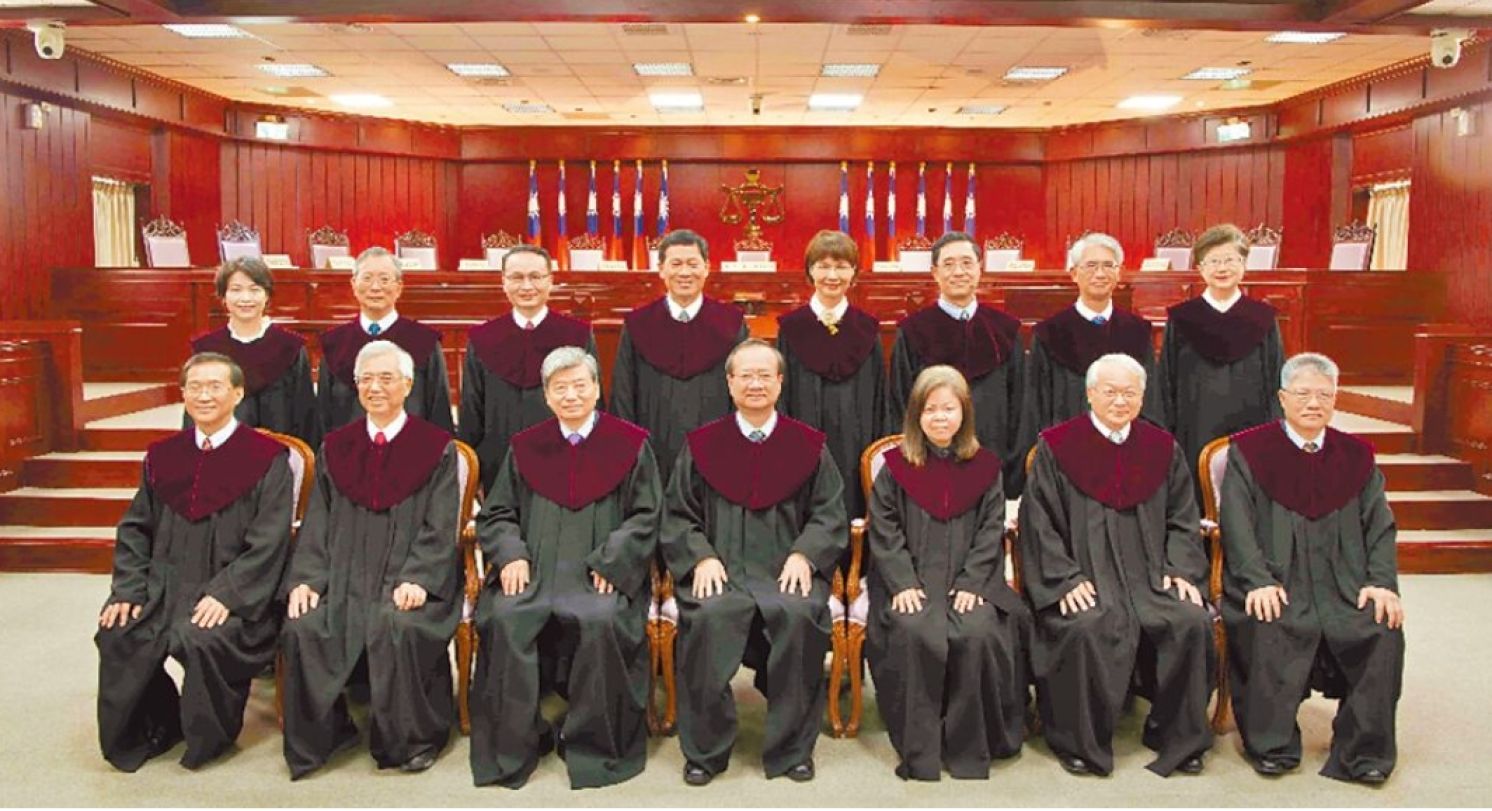
Grand Justices Reduced to Vassals Performing by the Playbook
Lin Ching-wen, United Daily News, July 20, 2024
The Legislative Yuan recently passed amendments to the Act Governing the Legislative Yuan’s Power and Criminal Code for contempt of parliament, among other laws, drawing controversy over expansion of powers. The Democratic Progressive Party (DPP) caucus of the Legislative Yuan, Executive Yuan, the president, and Control Yuan have all filed requests for judicial review and provisional injunctions. After intensive deliberation over several days, the Constitutional Court approved temporary suspension for most of the six major parts, except for some provisions of the Act Governing the Legislative Yuan’s Power, which can still be temporarily applied. Although this decision was expected, it still stirred widespread public outcry.
The handling of documents in the preliminary procedures was hasty, and the biased attitude of the grand justices during the questioning revealed the underlying issues. A "provisional injunction" is a preventive measure granted by judicial authorities to temporarily suspend the application of a law in cases of urgency or irreversibility, such as the demolition of a house that cannot be restored. However, a "provisional injunction" itself does not have the effect of a final judgment. To enforce the will of President Lai Ching-te, the DPP unprecedentedly filed for constitutional interpretation and provisional injunctions through multiple channels, making the constitutional court judges appear as political tools under various pressures, collaborating without limits.
On close examination, is there any urgency or irreversibility in the six major parliamentary reform bills passed by the Legislative Yuan? Furthermore, before the constitutional court made its decision, President Lai declared that "it is inappropriate to take action before the grand justices' constitutional interpretation," thus not accepting the parliamentary reform bills passed by the Legislative Yuan. He even made inappropriate remarks like "if the bill is not passed, let the bluebird fly out." Lai, as mayor of Tainan, could avoid appearing before the Tainan City Council for over 200 days, despite being reprimanded by the Control Yuan. And former Minister of Agriculture Chen Chi-chung also stated that he would not accept summons from such an "unconstitutional organization." How can a former minister disregard the rule of law so blatantly? Did they know the Constitutional Court's decision in advance, or do they believe that executive power is supreme and legislative power is merely advisory?
Additionally, according to the Additional Articles of the Constitution, the Control Yuan is the nation's highest supervisory body, exercising impeachment, censure, and audit powers. The Control Yuan's request for constitutional interpretation is based on the Legislative Yuan infringing on its investigative authority. However, investigative authority is not exclusive to the Control Yuan; administrative agencies also have investigative powers as stipulated in the Administrative Procedure Act. In practice, various agencies have parallel investigative powers, and if legislators misuse their authority, the Control Yuan can still exercise impeachment and censure powers. Therefore, the Control Yuan is not a wronged party and lacks grounds for constitutional interpretation. The Control Yuan should remain impartial and above political strife, yet it has lost its stance and engaged in political maneuvers.
According to Article 116, Paragraph 1 of the Administrative Litigation Act, filing an administrative lawsuit does not suspend the execution of the law, respecting the maintenance of legal order. In 2004, the "Special Investigation Committee Act on the March 19 Shooting Incident" was passed to investigate the shooting incident before President Chen Shui-bian's election, yet Chen, as a legal professional, did not declare the suspension of this law or request a "provisional injunction." Subsequently, through constitutional interpretation, parts of the law deemed unconstitutional were amended or deleted and republished, while the remaining parts remained effective.
The Constitution has always been a safeguard of the people's rights, aiming to prevent the expansion of executive power into a destructive force. Currently, the DPP, wielding the advantage of executive power, is trampling on judicial and legislative powers, with the Control Yuan failing in its role and succumbing to political influence, marking the onset of a constitutional crisis. Taiwan faces military threats across the Strait, potential uncertainties following the U.S. election, and internal crises such as power shortages. Instead of fostering unity, President Lai is stoking division. What is his motive?
(The author is adjunct associate professor at the Department of Law, Shih Hsin University.)